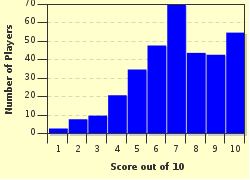Quiz Answer Key and Fun Facts
1. The giant Pacific octopus is a top predator, feeding on bivalves, crustaceans, mollusks and fish. Part of its extraordinary hunting ability comes from the suckers on the arms. What sense do the suckers use to help the octopus hunt?
2. The third right arm of a male octopus has a special tip, called the ligula. What function does the ligula serve?
3. In 2009, an American woman was in the news for giving birth to octuplets, bringing her total number of children to 14. The tabloids dubbed her "Octomom." How many times can real octo-moms reproduce?
4. Octopuses are in the class Cephalopoda, meaning head-foot. (I think you can guess why.)
What group of animals would you be most likely to see at an octopus family reunion?
5. At birth, the giant Pacific octopus is considered plankton.
6. When an octopus wants to, it can change color almost instantly! What are their color-changing skin cells called?
7. If you dissected a giant Pacific octopus, what body part might you think came from another animal?
8. Octopuses are often considered the smartest invertebrates. What have we seen octopuses in captivity do?
9. If you are diving, how can you tell where a giant Pacific octopus lives?
10. What is the best reason not to bother a giant Pacific Octopus in the wild?
Source: Author
Possible1234
This quiz was reviewed by FunTrivia editor
crisw before going online.
Any errors found in FunTrivia content are routinely corrected through our feedback system.

